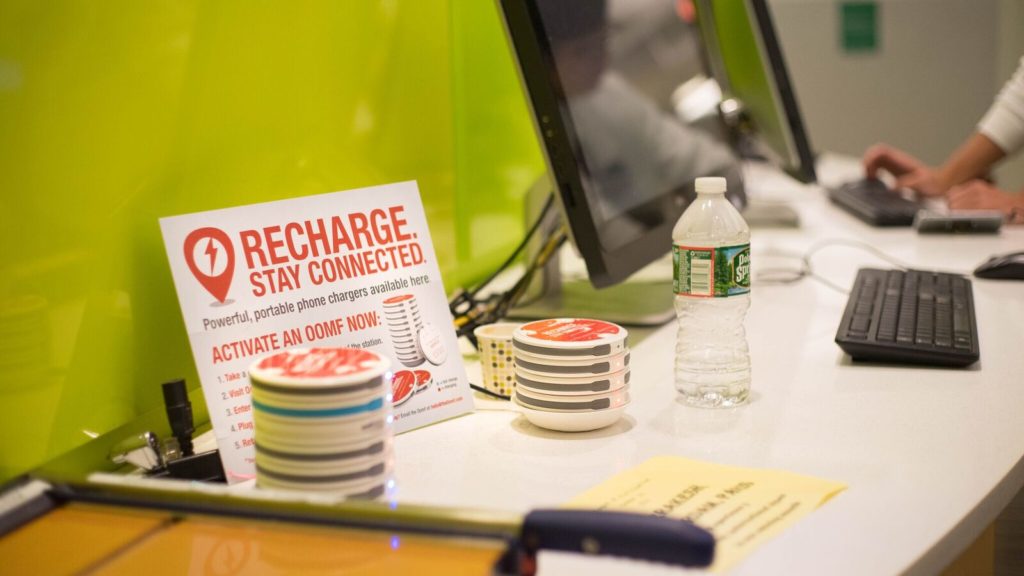By Rachel Morford, news staff
The Northeastern Graduate Student Government (GSG) is celebrating the successful inauguration of a new graduate-students-only study space open after hours in Rebecca’s Cafe from 5 to 11 p.m. The addition is one of many university initiatives announced in response to graduate student requests — which also included improved access to affordable childcare, renovation to the RedEye shuttle service and increased funding allotted for graduate professional development.
“Over the last two years there’s been a significant shift in the responsiveness of the university when it comes to graduate student issues,” said Ranjini Ghosh, current GSG vice president of student affairs and a Ph.D. candidate in Law and Public Policy. “This year we got positive responses and all of the four things that we asked for, and it’s been amazing.”
According to the GSG constitution, GSG officials are responsible for coordinating the Budget Priorities Survey. Released at the end of fall semester each year, this survey gives graduate students the opportunity to voice concerns and suggestions to the university. GSG synthesizes the data and presents the most pressing points to the university budget committee. The annual process is lengthy and bureaucratic, Ghosh said, and does not always yield favorable results.
“Graduate students don’t really get to know what is happening until an announcement gets made. It’s a long and arduous process,” Ghosh said. “Just for the Rebecca’s study space there were so many little things you had to think about.”
The call for more graduate-student-only study spaces stemmed in part from graduate students working as adjunct professors and feeling uncomfortable studying alongside their undergraduate students, Ghosh said. The other aspect of the request concerns a general lack of available space, said adjunct professor and third-year psychology Ph.D. candidate Peter Ward.
“[Adjunct professors], believe it or not, don’t always have their own designated work space,” Ward said “In that sense, I think that having extra workspace is always helpful. In a given week, I use two or three different workspaces on campus. I do not have an office — my office hours are just the hours I have available.”
According to a 2012 article from The News, this is not the first time Rebecca’s Cafe has been transformed into an after-hours study space. However, in the past the space was rarely used because of a lack of accommodating outlets. This problem has been addressed through Northeastern’s extended use of the sharing service coordinator Oomf.
Students may recognize Oomf as the company behind the temporary chargers available across campus.Oomf itself is not a manufacturer of batteries, but rather a software development company focused on bringing services and goods into the burgeoning sharing economy. The company’s most recent partnership is with the creators of the portable outlet, Omnicharge. Under Oomf’s direction, Northeastern now sports two Omnicharge stations in Rebecca’s, each station holding nine detachable batteries with three-prong outlet compatibility. When it came to Rebecca’s, installing Omnicharge stations was the most cost-effective way to increase space viability.
“That’s a big problem [in Boston universities], there’s just a lack of accessible outlets,” said James Riel, co-founder and chief revenue officer of Oomf. “One of the reasons Northeastern wanted to put the the new Omnicharge models into Rebecca’s is because it would be more expensive to retrofit standard outlets. This is a comprehensive solution.”
Oomf is not the only digital service Northeastern has invested in on behalf of the graduate student population. According to a September email to all students from NU Vice President of Student Affairs Madeleine Estabrook, the Northeastern University Police Department is creating the RedEye shuttle app through a partnership with TransLoc Rider. This app will streamline the boarding process, and allow users to save shuttle seats ahead of time. Additionally, the university has expanded the RedEye service parameters to within two miles of campus, Estabrook said in the same school-wide email.
In response to GSG’s request for more funding and professional development, Northeastern has committed $100,000 to cover costs of Ph.D. students seeking to attend national conferences related to their degrees and research. In the past, GSG managed the funding of conference expenses primarily through the graduate student activity fee. A few years ago, the majority of GSG’s budget went to funding the professional excursions of individual students, Ghosh said.
Ghosh worked for eight months in a task force comprising other graduate students and university representatives to design an encompassing Ph.D. network. On its webpage, the Northeastern Ph.D. website describes itself as “an organization designed to build community among PhD students, and to provide them with support and resources university-wide that will enhance the educational experience and career preparation.”
One of the most important changes the university enacted this year involved life outside the graduate programs. Before the 2017 budget announcement, graduate students had few options when it came to consistent and affordable childcare. For students supporting a family, last minute upsets were a source of extra stress. When the university announced its partnership with the caregiving network care.com, Ghosh — who served as GSG president for three years before beginning her current term as vice president of student affairs, and who has a young daughter — was brought to tears.
“It was an amazing announcement for me at a personal level,” Ghosh said. “I’ve sort of taken this on for the last few years and it was extremely validating.”









